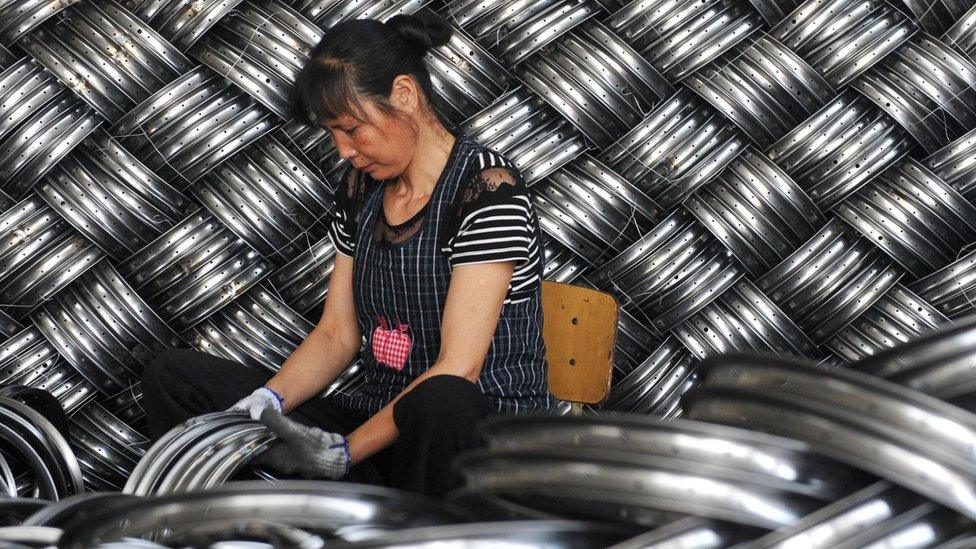US says China has 'not altered' unfair trade practices
- Published

The Trump administration has accused China of not changing its "unfair" practices, inflaming a trade dispute between the world's two largest economies.
In an update to a March report, the US said China had failed to alter its "unreasonable" practices.
The US has, along with other countries, long criticised Beijing over its trade policies.
The move raises tensions ahead of a high-stakes leaders meeting this month.
US President Donald Trump and Chinese President Xi Jinping are due to meet on the sidelines of the G20 summit in Argentina. Their meeting will be closely watched for any progress on resolving the bitter trade dispute.
But the latest comments from the US could make negotiations more difficult.
'Strengthened monitoring'
"China has not fundamentally altered its unfair, unreasonable, and market-distorting practices," US Trade Representative (USTR) Robert Lighthizer said in a statement on Tuesday.
The findings are part of an investigation into Beijing's intellectual property and technology transfer practices, which has prompted tariffs on billions of dollars worth of Chinese goods.
Mr Lighthizer said the updated report was part of the Trump administration's "strengthened monitoring and enforcement effort".
despite the relaxation of some foreign ownership restrictions, "the Chinese government has persisted in using foreign investment restrictions to require or pressure the transfer of technology from US companies to Chinese entities".
So far, the US has imposed three rounds of tariffs on Chinese goods, totalling more than $250bn (ÂĢ195.5bn).
Beijing has struck back. It's accused the US of starting "the largest trade war in economic history" and imposed tariffs on $110bn worth of American goods.
Comments from both sides have frustrated the hopes of easing tensions at the upcoming G20 meeting.
For the first time in its history, an Asian economic summit last weekend failed to conclude with a joint leaders statement because of US-China divisions over trade.
A top Chinese diplomat said the failure of Apec officials to agree on a communique was a result of certain countries "excusing" protectionism, a veiled threat at Washington, Reuters reports.
At the meeting, US Vice-President Mike Pence said he was prepared to "more than double" the tariffs imposed on Chinese goods.
- Published18 November 2018
- Published22 October 2018